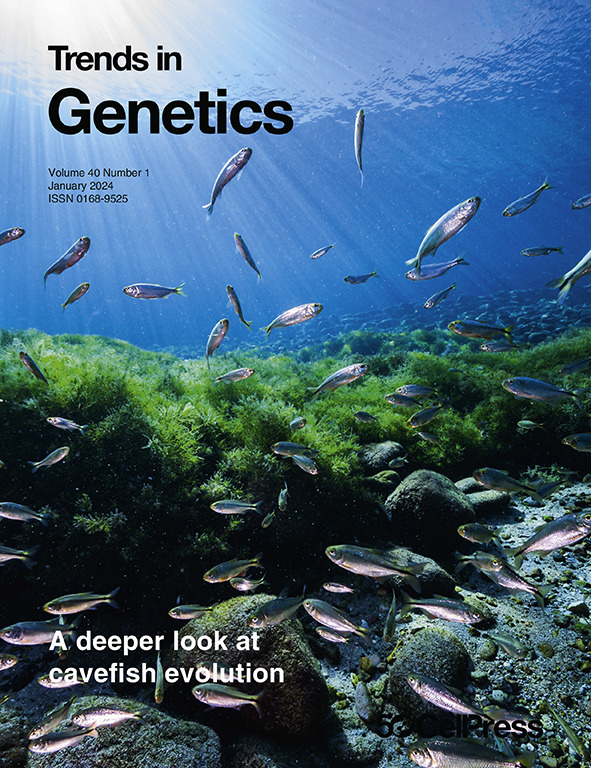复杂疾病满足深度表型和生成人工智能。
IF 16.3
2区 生物学
Q1 GENETICS & HEREDITY
引用次数: 0
摘要
复杂疾病是异质的,并沿着一个连续体进化,限制了当前方法在个体水平上的预测。人类表型计划(HPP)将深度表型与生成式人工智能(AI)相结合,以识别健康参数的早期偏差。虽然该项目已经提供了重要的见解,但挑战在于将这些发现转化为可操作的、公平的和可扩展的干预措施,在不同人群中推进精准医疗。本文章由计算机程序翻译,如有差异,请以英文原文为准。
Complex diseases meet deep phenotyping and generative AI.
Complex diseases are heterogeneous and evolve along a continuum, limiting individual-level prediction with current approaches. The Human Phenotype Project (HPP) integrates deep phenotyping with generative artificial intelligence (AI) to identify early deviations in health parameters. While the project has already provided significant insights, the challenge is converting these findings into actionable, equitable, and scalable interventions, advancing precision healthcare across diverse populations.
求助全文
通过发布文献求助,成功后即可免费获取论文全文。
去求助
来源期刊

Trends in Genetics
生物-遗传学
CiteScore
20.90
自引率
0.90%
发文量
160
审稿时长
6-12 weeks
期刊介绍:
Launched in 1985, Trends in Genetics swiftly established itself as a "must-read" for geneticists, offering concise, accessible articles covering a spectrum of topics from developmental biology to evolution. This reputation endures, making TiG a cherished resource in the genetic research community. While evolving with the field, the journal now embraces new areas like genomics, epigenetics, and computational genetics, alongside its continued coverage of traditional subjects such as transcriptional regulation, population genetics, and chromosome biology.
Despite expanding its scope, the core objective of TiG remains steadfast: to furnish researchers and students with high-quality, innovative reviews, commentaries, and discussions, fostering an appreciation for advances in genetic research. Each issue of TiG presents lively and up-to-date Reviews and Opinions, alongside shorter articles like Science & Society and Spotlight pieces. Invited from leading researchers, Reviews objectively chronicle recent developments, Opinions provide a forum for debate and hypothesis, and shorter articles explore the intersection of genetics with science and policy, as well as emerging ideas in the field. All articles undergo rigorous peer-review.
 求助内容:
求助内容: 应助结果提醒方式:
应助结果提醒方式:


